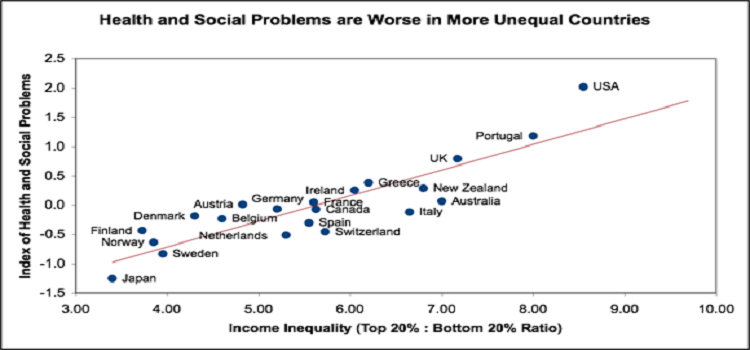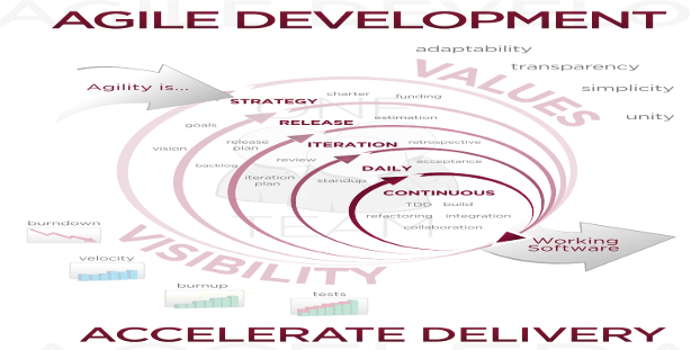20 Notorious Problems of Smart People
| Ⓒ By Jonathan Roseland |
I'm not a doctor, medical professional, or trained therapist. I'm a researcher and pragmatic biohacking practitioner exercising free speech to share evidence as I find it. I make no claims. Please practice skepticism and rational critical thinking. You should consult a professional about any serious decisions that you might make about your health. Affiliate links in this article support Limitless Mindset - spend over $300 and you'll be eligible to join the Limitless Mindset Secret Society.
Society puts smart people on quite a lofty pedestal but there are some real downsides to being highly intelligent.
2024 Update: I've spent the past 12 years doing lifestyle design experiments, trying to systematize and build habits to minimize the idiosyncrasies and insecurities that arise from my intellect. I've done a pretty good job of beating the "smart people problems." I put together a Lifestyle Plan flowchart that visually breaks it down, it's a peek into some of the wacky, unconventionally yet seriously effective lifestyle strategies that empower the pretty awesome life I have, get it here.
You read Limitless Mindset because you were either born a smart person (which, as you will see by the end of this article. is not such a lucky roll of the genetic dice) or on your way to becoming a very smart person. Whether you're a part of the club already or still (like me) paying your dues, some things suck about being smart...
By the end of this article
You will understand some of the vexing problems that you have, up to this point in your life, failed to beat with your smarts and intellectual resources. For each problem we identify solutions; both actionable behaviors to change and deeper mindsets to internalize.
Do you know anyone that when you talk to them you feel like a young Jedi getting advice from Yoda? I do. His name is Dr. Mark Ashton Smith. Dr. Smith runs a cognitive psychology lab at the University of Cyprus, is a lecturer at Cambridge University, and is the creator of the brain training software Dual N-Back Pro. He's one of the most insightful, well-spoken, and charming people I know. We had a +1 hour conversation about smart people problems in Limitless Mindset Podcast #26, give it a download!
Getting laid less

Highly intelligent people usually have less sex, especially when they are younger. I used to fit into this stereotype...
I lost my virginity to a spy. Here's the story...
At age 20, I had a great social life and lots of friends who were girls but I was a virgin and I badly wanted to change that. I met her on the dancefloor at a foam party (classy... I know!). She had an exotic, black woman's name.
The girl I met amidst the suds aggressively thrust me into her social group. We started going out together once or twice a week, as friends. One night we jokingly agreed to be each other's PLAN B in case we didn't hook up with strangers at the party we were headed to (again, classy, I know!) Before I dropped her off I announced that I needed a glass of water from her kitchen. I left about three hours later devirginized. When we had first met she mentioned she had studied criminal justice. I found out a year later that her secretarial office job was a cover for her job as a spy. She worked for the State of Colorado and was investigating her employer for financial fraud. As she grew to trust me she confided various details of her undercover assignments. Eventually, she quit after witnessing a recently deceased coworker - there's no way I would share this via my blog if she was still a spy. She was a good friend.
![]()
Unfortunately, the stereotype of the sexually frustrated nerd who hasn't been laid in six months is pretty accurate, especially in younger people as documented in a Journal of Adolescent Health paper. I'm not just talking about smart guys either, there's a strong correlation between lower birthrate and women of higher education and IQ. Smart people's tendency to over-analyze probably has a lot to do with this problem, we are more often doing a cost-benefit analysis, second-guessing decisions, and trying to make predictions about our future relationships when we should probably be thinking with our loins instead of our neocortexes.
 Smart single guys...
Smart single guys...
Intelligence is a double-edged sword in seduction, as you know, there are a lot of ways that it can work against you. You'll want to read my new book, Don’t Stick Your Dick in a Blender, because your intelligence may filter predatory women into your life.Good, yet naive, men routinely wreck their lives because they “stick their dick in a blender” — having sex with the wrong kinds of women. STDs, unplanned pregnancies, false accusations, mental health headcases, and divorce make chasing skirts a dangerous game. Please, don’t underestimate how easy it is to royally screw up your life by inviting the wrong kinds of women into your bed. This book delves into some advanced social dynamics hacks filtering into your life the right kinds of women.
If you want to “test drive” the book, download these sample chapters and read them at your leisure on your E-Reader device or smartphone with the Kindle app.
On the Bright Side: General Survey Data from the United States suggests that richer, more educated people enjoy sex more.
The Solution: The activities that get you laid; dating, courtship, and lovemaking are skill sets that need to be developed with study, coaching, practice, and repetition. Three excellent, ethical resources I've found for these areas are The Art of Charm Podcast and Real Social Dynamics on YouTube. A MindMeister flowchart is a great tool for purposeful lifestyle design.
The ego problem with Evolutionarily Familiar tasks

Smart people are prized by society because higher IQs correlate to the activities for which there are more economic rewards; doing well in school, finding a good job, applying abstract ideas, using technology, etc. These are activities completely alien to our evolutionary ancestors. In a recent The Economist article, Satoshi Kanazawa, author of 3 books and +80 articles on psychology, explained that what smart people generally suck at is things that are Evolutionarily Familiar: finding someone to mate with, making friends, parenting, preparing food, etc. The ego problem with this is that most smart people assume that they should be able to do these things on autopilot since they are so competent in doing Evolutionarily Novel activities that are perceived as more complex and challenging.
The takeaway: For smart people, doing Evolutionarily Familiar activities excellently will require just as much, if not more focus and energy than complex, abstract activities. So relating to your kids or scoring a date is going to take just as much focus as programming a website or landing that high-paying job.
The spacing problem of memorization
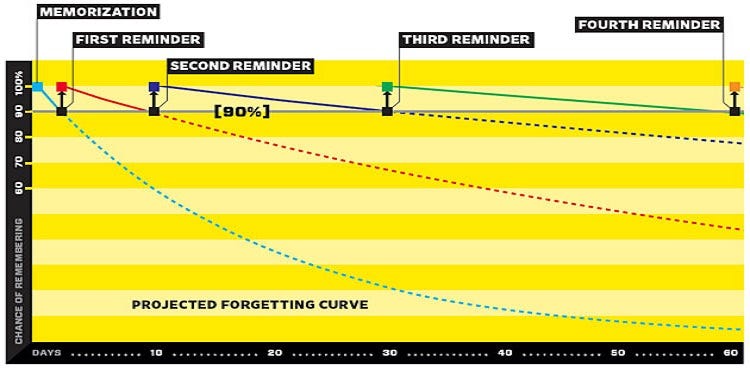
For smart people life entails a lot of memorization, however, memorization is an intrinsically inefficient activity due to the way our memory is wired to forget things. After a certain amount of time, unused information gradually becomes less available to the conscious mind. The optimal time to do a review study of something is when it is on the cusp of being forgotten. Studying when it is fresh in your mind or after it has already been forgotten is redundant and we are surprisingly bad at predicting when we are going to forget things.
A personal example: In year 1 of Spanish classes in high school (over a decade ago for me) 'Hat'-Sombrero was a vocabulary item. Years later, now pretty fluent in Spanish, while chatting up a girl wearing a fashionable hat at a rooftop bar in Colombia, I was horrified to realize that I had completely forgotten the Spanish word for hat. The reason why is despite frequently talking in Spanish it had been years since I'd reviewed my year 1 vocabulary.
The Solution: Technology to the rescue! A Polish software Entrepreneur, Piotr Wozniak, has committed +30 years to understanding this problem of memory and developing SuperMemo, a software application that uses a sophisticated algorithm to predict when you are most likely to forget something you have learned and prompts you to practice enough sessions 'on the cusp of forgetfulness' so you perpetually retain the knowledge you spend so much time and effort acquiring.
Technology addiction

Smart people are a whole lot more likely to spend what could be the happiest times of their lives staring at glowing screens. Due to our affinity for Evolutionarily Novel activities, we are more likely to spend a disproportionate amount of our time interacting with our technology over activities that result in genuine happiness.
Realize: One day at your funeral (for those of you non-transhumanists) is anybody going to praise you for keeping your email inbox well organized, antivirus software up to date, or having a high World of Warcraft score? Not likely! Get out there and do something risky that will make a good story to tell your grandchildren one day.
To combat the significant negatives of information addiction I've developed the High Leverage Information Diet; check out this 37-minute mini-documentary about it.
Workaholism
Many smart people live by this (disproved) trite maxim:
Entrepreneurship is living a few years of your life like most people won't so that you can spend the rest of your life like most people can't.
The #1 ranked country for Workaholism, Japan, also has the 3rd highest average IQ of any country. South Korea, with the 2nd highest average IQ, is also #4 for Workaholism.
Why Workaholism Sucks: A generally unbalanced lifestyle of checking your smartphone in the middle of the night, missing family events, ignoring reproductive opportunities, and eating fast food in the few free moments you have between sleeping, commuting, and working. Workaholics also have a hard time with consistent exercise regimes.
Mindset Solution: Realize that, proportionally, the more a work goal stresses you out, the less satisfied you will ultimately be when the goal comes to fruition.
Lifestyle Solution: Practice as much discipline and systematization in your personal life as you do in your work life:
- Set specific times of the day and week for work. Don't work outside of these times.
- Turn off your work technology and keep it off.
- Biohack your neurotransmitters to deal with stress.
Many workaholics are driven by the platitude that they are just working a few years of their life like most won't, so they can live the rest of their lives like most can't - This deceptively inspirational platitude leads many ambitious people to burnout and failure, download this podcast for a case study of this and some actionable solutions.
Substance abuse likelihood

Smart people are frequently novelty junkies, which means we have a predisposition to what Psychology Today calls Evolutionarily Novel activities; like drinking, smoking cigarettes, and doing hard drugs; cocaine, ecstasy, etc.
The Solution: Apply just a few strategies and tactics from this exhaustive article on how to Biohack yourself for better self-control. Also consider supplementing the Piracetam, the smart drug that beats addiction.
This smart drug has been shown to help those suffering from alcohol and methamphetamine addiction. On the Wikipedia page, there are 6 different studies linked where Piracetam helped people with alcoholism issues. Check out this comparison of Piracetam supplements.
More likely to be a psychopath
Several studies, including one done in the Georgia Penal System and another by Swedish University, have shown a correlation between high IQs and Psychopathy. Does this mean that smart people have to beware of 'American Psycho' type behavior from their alter egos? Unlikely, the vast majority of Psychopaths are non-violent. The simplified definition of Psychopathy is the inability to empathize with other people, psychopaths lack the emotional intelligence to understand that others can feel pain. This means that psychopaths can cause incredible emotional distress to those around them, so be vigilant of this in yourself and the smart people you deal with.
Being a night owl
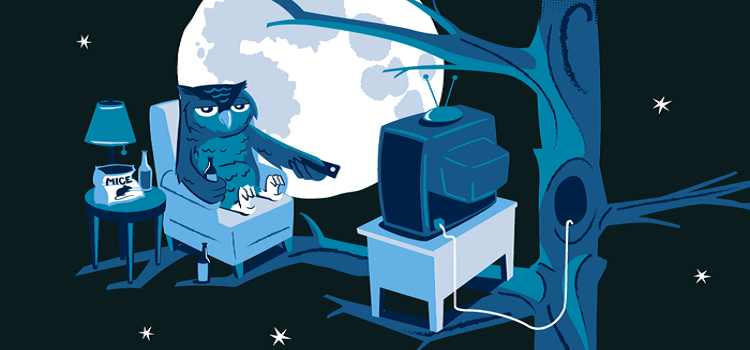
A 2009 University of London study found a correlation between higher IQ and staying up late, along with sleeping in. While the rest of the world goes to bed, has sex, or spends time with family and friends, for smart people, the evening hours are a golden time for adding productivity to the day.
Why this sucks: Being a night owl is correlated to depression and other health risks.
Solutions:
- Set specific times to stop working at night and turn off your technology at night.
- If you are going to log screen time after the sun goes down, install the Iris app on your PC, iPhone, or iPad to protect your circadian rhythm.
- Avoid drinking alcohol within an hour or two of going to bed (I know, sometimes much easier said than done!), it releases peptides that will wake you up in the middle of the night.
- If you have trouble falling asleep at a reasonable hour, drink Ashwagandha-chamomile tea, supplement Magnesium or CBD, and research sleep hacking.
Cognitive bias blind spots

All human beings suffer from cognitive bias; meaning that when faced with novel challenges or situations our minds try their damnedest to interpret them through preexisting belief systems. The brain always avoids complex logical interpretations of problems, preferring to take cognitive shortcuts.
Here's a great example:
Question: A bat and ball cost a dollar and ten cents. The bat costs a dollar more than the ball. How much does the ball cost?
Most people answer this question in a moment: The ball must cost 10 cents, but this answer is, in fact, a mental shortcut around actually doing the math. The correct answer is:
Bat $1.05
Ball $.05
Total: $1.10
If you, like most people got this wrong, it reveals your cognitive anchoring bias towards figuring things out with language as opposed to mathematics (no worries, it didn't make sense to me either until I wrote it out).
Why this sucks for smart people: A study, Cognitive sophistication does not attenuate the bias blind spot, done at James Madison University showed that smart people have larger bias blind spots. While smart people are especially bad at accounting for our blind spots we seem to be fairly good at pointing out others' so the solution may be as simple as a peer network to review your mission-critical decisions and work.
Going deep with people
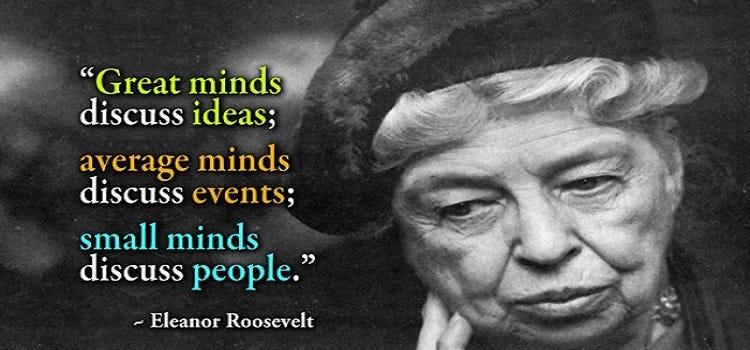
Many smart people experience chronic "intellectual loneliness" unless they have a work or social network of friends who enjoy discussing deep subjects.
Solutions: Be more purposeful about your social life...
- Focus on connecting with groups and individuals who have a stated interest in the subjects you enjoy.
- Utilize local social networks like MeetUp.com, Internations.com, and couch surfing sites for travelers (but not CouchSurfing.com - it's now just a credit card fraud front site).
- Practice the Secret Society Model of "Networking."
- Join Toastmasters or clubs that exist for discussion of intellectual subjects.
- Use this line: "Great minds discuss ideas, average minds discuss events, small minds discuss people" to move the discussion into more intellectual territory.
You lie more

When they put smart people in MRI machines there's a strong correlation between higher Executive Functioning and lying. Smart people are better at keeping track of the myriad of false details needed for a complex deception or maybe they just know to employ the cardinal rule of lying: the truth is, indeed the best tool in the services of lies.
What if you're a crappy liar? It has been demonstrated in 3 studies that Executive Functioning can be improved with only 20 days of Dual N-Back software training. Get Dual N-Back Pro to start Dual N-Back training today, you're less than three weeks away from being a finer fibber!
You are easier to scam
Three studies have demonstrated that more educated people are more likely to fall for investment scams. As someone who has personally been investment scammed, I can tell you it's due to a combination of greed and ego. The desire for fast money in combination with believing that I was too smart (that my 'business opportunity radar' was so finely tuned) to be taken advantage of.
Talking about yourself

A frequent tendency of smart people or smart-seeming people (like me!) is to dominate conversations talking about yourself, your things, or your experiences. This can be a serious turn-off to others and reveals a real lack of emotional intelligence. Some lines and conversational techniques to keep the conversation balanced:
- "Tell me something interesting about yourself..."
- "What do you do when you aren't__________________?" The blank is something contextually relevant; what they are wearing, the location of the conversation, common activity, etc
- Use of micro assumptions: To keep people talking about themselves, as opposed to yes/no questions or multiple choice questions, state small (sometimes cheeky) assumptions about them based upon what you know about them. Example: You're from London... So do you work in finance or fashion? I've used this micro assumption for +25 people I've met from London and the vast majority did, in one way or another, work in finance or fashion. Almost all of them were impressed that I intuitively assumed this.
- Use your smartphone to record your conversations for future analysis of your communication weak spots.
- Play a game where you count how often you say I, Me, or My. You'll find that a disproportionate amount of your sentences begin with these words. Then play a game with yourself where you try to reduce the number of times you say these words.
- If you are having a very frank conversation with someone, after your opinion has been asked on something, respond: 'I'm tired of talking about myself, one of my personal development goals is to not talk about myself so much, let's talk about you.' If done at the right moment, this communicates confidence and maturity. You can even turn it into a self-effacing joke a little later when you do finally talk about yourself... 'Wow, I just went a whole 10 minutes without talking about myself!'
- Check out the social dynamics section of LimitlessMindset.com, which has some exhaustive articles, videos, and audio resources on the art of being a master conversationalist.
More likely to be an atheist
Interestingly, our evolutionary psychology encourages us to believe in God, so Evolutionarily Novel smart people are a whole lot more likely to be atheists or at least not religious. While not many smart people would admit this is a problem, religious people usually live longer and generally are happier. Leaving your faith can also cause disagreements with your family and can separate you from your community.
People stealing your ideas
Smart people worry about this one way more often than it happens. The more I grow as a business person the more I realize that ideas, even radically profitable ones, without execution are worthless. The best defense against people stealing your ideas is to execute them to the extent that people don't want to compete with you.
The Solution: It's highly unlikely someone's going to steal your ideas, so it's probably not worth worrying about. Worry more about executing ideas.
Have people sign NDAs: Non-disclosure, non-compete agreements don't really stand up in court much longer but if the person sitting on the other side of the table is gullible enough to sign one it at least sets a precedent that makes them stealing your idea less likely. Here's my NDA template.
Social Proof: Set up karmic social repercussions for stealing your idea. Make sure that you have enough mutual acquaintances with people that stealing your ideas would hurt their reputation.
Being book-smart but lacking street smarts
'Street Smarts' correlates to 'Emotional Intelligence' and 'Evolutionarily Familiar' activities, which smart people struggle with.
The Solution: "Book Smart" people have quite the advantage in becoming "Street Smart" because of the discipline they have in their study habits, this discipline will serve them exceptionally well when applied to studying social dynamics ('Street Smarts')
Budget Travel - The ultimate tool for personal development
The more authoritative content you consume from legit personal development gurus and genuinely wise people the more you will hear about world travel. Indeed if you want to acquire "Street Smarts" follow this simple, adventurous process:
- Get a map.
- Pick a place a few oceans or a hemisphere away.
It has to be somewhere that you don't have any friends, know the culture, or speak the language. - Quit your job or sell your stuff so you can travel for a while.
- Live in that foreign place long enough to learn to speak the language fluently (which some language learning experts say can be as short as 90 days) and build a social circle
Very few people will do this but they consistently will develop intuitive street smarts for dealing with a wide spectrum of people.
Staying playful
Even for smart people with good emotional intelligence, it's very difficult to quantify an ROI from playtime. However, all work and no play makes for a dull, unfulfilling life. Many smart people enjoy their work, which makes it even easier to work all the time since you can make the logical argument that your work is kind of like play to you. This ties into that BS personal development platitude we all heard growing up: Figure out what you love to do, and then all you have to do is find someone to pay you to do that thing.
This is like telling a porn star they shouldn't have a dating life since their job is to have sex (In case you don't have any friends who are porn stars, normalcy in dating is a major challenge for them). Don't ignore your basic human need to be playful because of this silly logical mechanism people use to justify their workaholic tendencies.
A Mindset Solution-Memory Systems: Memory Systems, a tool used by smart people for millenniums prompts you to use the more creative side of your mind for remembering usually mundane data. You'll find your ability to make playful banter increases as you use Memory Systems. For a comprehensive (and free) multimedia course on Memory Systems, join the Limitless Mindset Community.
Other ideas for staying playful:
- Take an improv class.
- Try stand-up comedy.
- Get involved with a local sports league or activity club that does something playful.
- Volunteer to work with kids.
- Try LARPing, it looks seriously awesome to me!
Being used because you are the "smart one"
On a basic level society values smart people because we can solve problems, intelligence is a commodity in the business world that can be traded for money. Unfortunately, smart people, often lacking in social savvy think that, like in the world of work, their intelligence can be traded for genuinely satisfying interpersonal relationships. It can't. I'll repeat that because if you, as a smart person can truly understand this dynamic it will make a profound difference in the happiness your relationships bring you. It's not possible to convert your intelligence or trade solving a complex problem for genuine friendship or attraction. You're going to have to put in work the old-fashioned way to make friends or attract people.
Personal Example: Years ago someone I knew well was badly in need of a sharp website for their small business as a public speaker. This person had an active social life, at a time when my social life was going through a real dry spell due to a combination of factors. I did my friend a favor, built them a sharp website, and maintained it for several months, free of charge. This favor was never returned and it turned out they weren't so interested in me being part of their social circle. The few times I did invite myself to their social gatherings, I was an obvious outsider, the person whom I had built the website for made little effort to introduce me to the group. I don't talk to him anymore.
On the Surface: My 'friend' was a tremendous douchebag and used me for a website that they should have paid four figures for.
However: I too was trying to use my friend, I was trying to trade the 10 - 20 hours or so it would take to build the website for the same kind of social status that my friend had no doubt spent years building with his group of friends.
Analysis paralysis
As mentioned in Aesop's Fables and Shakespeare's plays Analysis Paralysis has been a problem of smart people for a long time. Indeed, it is quite possibly the most insidious problem smart people have because it cloaks itself as the most essential processes employed in any successful endeavor; logic, cost-benefit decision-making, and planning. The problem occurs when the opportunity cost of decision analysis becomes greater than the benefits that could be gained from a positive outcome of that decision. Analysis Paralysis comes from the ego, the part of your personality that wants to maintain comfort and status quo. If you value adventure over comfort and are bored by the idea of status-quo living, then your risk tolerance is high and you should err towards the opposite of Analysis Paralysis.
Mindset Solution: Realize that the value and potential benefits of execution and decision-making are exponentially greater than the benefits of analysis. If you want a philosophically trite example to motivate you to bust out of Analysis Paralysis mode just ask yourself this question: One day when you are on your deathbed (again for the non-transhumanists out there), do you think you are more likely to regret that you didn't spend more time analyzing decisions? Highly unlikely. In fact, the vast majority of people on their deathbeds regret not taking more unquantified risks.
Practical Solutions:
 Embrace Failure - One of the greatest downsides of perpetual Analysis Paralysis is losing the opportunity to fail and learn from that failure. I hate to cover Self Help 101 territory on this blog but you should know by now that ultimate failure is not trying. Trying something and not quite pulling it off but learning, as a result, is almost as valuable as a success, in some cases debatably more. Indeed highly productive business people have mastered the art of failure; which means fail fast, fail small, fail measurably, and fail without your ego attached for a quick rebound.
Embrace Failure - One of the greatest downsides of perpetual Analysis Paralysis is losing the opportunity to fail and learn from that failure. I hate to cover Self Help 101 territory on this blog but you should know by now that ultimate failure is not trying. Trying something and not quite pulling it off but learning, as a result, is almost as valuable as a success, in some cases debatably more. Indeed highly productive business people have mastered the art of failure; which means fail fast, fail small, fail measurably, and fail without your ego attached for a quick rebound.- Look at Past ROIs on Risk - Take a minute to write down risks (big and small) you've taken or decisions made with incomplete information along with the result or turnout. What proportion of these had an ROI, positive turnout, or at least a neutral effect on your life? What proportion do you genuinely regret? What about if you account for the value of knowledge or life experience gained? For me, it's somewhere in the 90 percentile of unquantified risks I took either resulted in a positive outcome or at least a neutral outcome with enough life lessons or cool experiences attached to call it a win. Review this list of your past successes when you find yourself paralyzed by analysis.
- Time Boxing - to combat Analysis Paralysis programmers have developed the Agile Software Development method which employs time boxing. This simply means that there is a set amount of time and resources that can be spent on analysis and planning. Mission-critical decisions must be made by set dates, even with incomplete information to ensure momentum.
 The Billionaire's Decision Making Technique - In my formative years as a business person I voraciously consumed Donald Trump's capitalist manifestos. Regardless of what you think of him as a celebrity, he's got a surprisingly simple method for making decisions fast, that has served me well:
The Billionaire's Decision Making Technique - In my formative years as a business person I voraciously consumed Donald Trump's capitalist manifestos. Regardless of what you think of him as a celebrity, he's got a surprisingly simple method for making decisions fast, that has served me well:
1. Make a logical cost-benefit analysis of a decision.
2. Get some informed second opinions on it.
3. Mentally move on from the decision and don't think about it for several hours or days. Go spend time with your family, do an exercise session, work on something else, or sleep on it.
4. Mentally return to the decision and go with your gut instinct.- Error on the Side of Audacious Action - The simplest solution to Analysis Paralysis is to take action vigorously with incomplete information. Great thinkers throughout the ages have articulated that making decisions in a bold manner gets epic results. I think Virgil said it best, Audaces Fortuna Juvat, 'Fortune Favors the Bold'. I also like Robert Greene's sentiment in The 48 Laws of Power, "...mistakes you commit through audacity are easily corrected with more audacity." I could only hope that one day my maxim on the manner might be quoted along with those of Virgil and Greene: Risk is the enemy of mediocrity, the greatest danger is living a boring life.
Premature aging
The following conditions contribute to premature aging in many smart people:
- Stress management
- Circadian rhythm mismanagement
- Mycotoxins in diet
- Alcohol
These factors multiplied by decades of life diminish the mechanisms of neuroplasticity. Even the most health-conscious lifestyle and painstakingly followed organic or Paleo-style diet are susceptible to influences that cause premature aging. A proactive offense is the best defense to maintain neuroplasticity, vigor, and vitality as you age.
What is Neuroplasticity?
Neuroplasticity promoters
Dual N-Back Pro - This software application for Windows and Mac employs the version of the Dual N-Back task which has been demonstrated to help maintain and increase neuroplasticity in the elderly. Regular practice with Dual N-Back Pro is part of a well-prepared defense against neurodegenerative conditions like Alzheimer's Disease and Dementia.
Toxin-free organic coffee and MCT Oil - These delicious consumables empower your lifestyle with sustainable energy and focus. Bulletproof Coffee ($18/monthly supply) is a seriously premium blend of toxin-free coffee, in combination with coconut-derived MCT Oil, which delivers powerful antioxidants in combination with healthy fat to feed your mind and body for rockstar productivity at any age.
The Racetams - This pharmaceutical-grade smart drug is demonstrated in hundreds of human, double-blind studies to Biohack Neuroplasticity, cognitive disorders, functionality in the elderly, subjective well-being, working memory, memory, stress, cognitive decline, and verbal fluency.
DMAE and L-Tyrosine creams - How about just looking younger? These two Nootropics are also available as creams that have the effect of removing wrinkles and age lines.
Smarts - A blessing or a curse?
Intelligence is a double-edged sword. It can be a blessing, granting us the ability to solve problems, learn new things, and create beauty. If you use your intelligence to make the world a better place, then it is a blessing. You can use your knowledge and skills to solve problems, help others, and create positive change.
But it can also be a curse, leading us to overthink, overanalyze, and worry ourselves sick. If you use your intelligence to dwell on negative thoughts or worry about the future, then it is a curse. You will be constantly stressed and anxious, and you will never be able to enjoy the present moment.
Intelligence is like a fire. It can be used to cook food, to keep us warm, or to burn down the house. It's up to us to decide how we use it.
Finally...
Join the Limitless Mindset Newsletter to...
Get weekly edifying content about Biohacking, Lifehacking, and my holistic pragmatic antifragility philosophy. This informative (and often entertaining!) newsletter is about how to take advantage of the latest anti-aging and Biohacking science, and where I dispense timely mindset nuggets, lifehacking tips, and my own musings.Don't worry! This just signs you up for our informative weekly newsletter (actually worth reading), NOT an aggressive automated marketing machine.
-
{{#owner}}
-
{{#url}}
{{#avatarSrc}}
{{name}} {{/url}} {{^url}} {{#avatar}} {{& avatar}} {{/avatar}} {{name}} {{/url}} - {{/owner}} {{#created}}
- {{created}} {{/created}}













